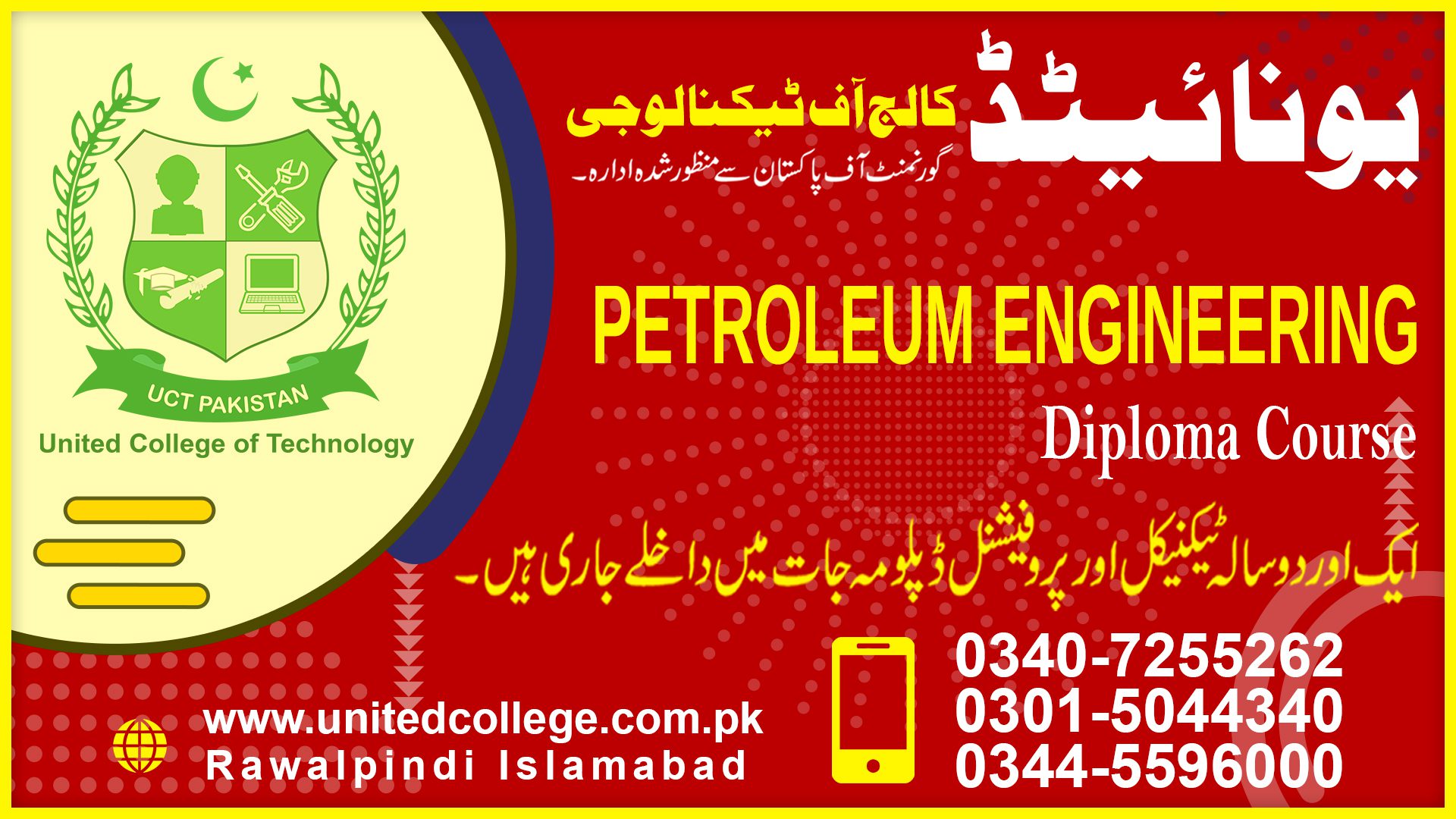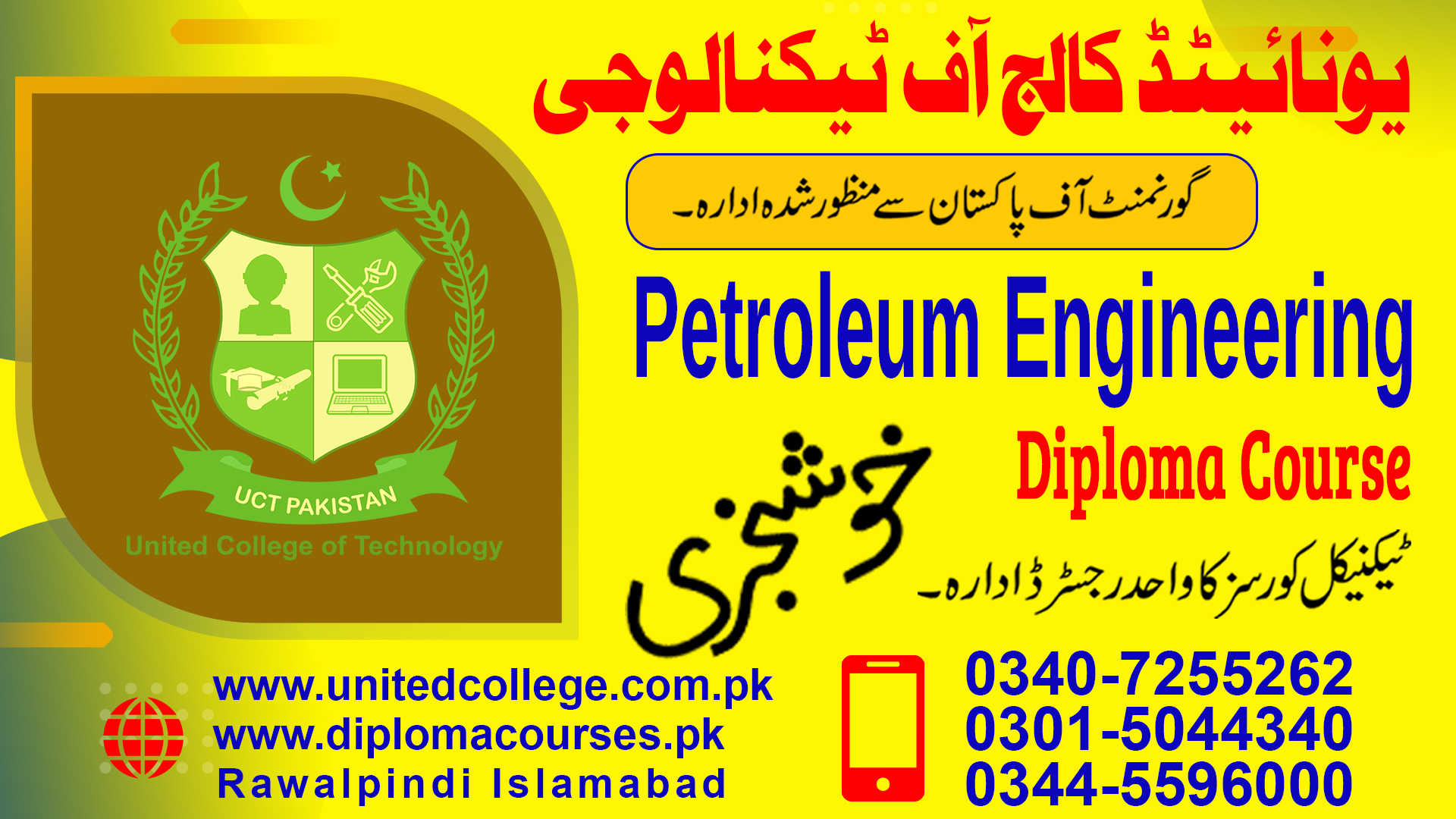Introduction
OIL AND GAS DIPLOMA COURSE IN RAWALPINDI ISLAMABAD PAKISTAN 0301-50440340
An Oil and Gas Diploma Course is a specialized program designed to provide students with a comprehensive understanding of the oil and gas industry, including exploration, production, refining, and distribution of oil and gas resources. This diploma course equips students with the necessary knowledge and skills to work in various roles within the oil and gas sector. Here is a description of an Oil and Gas Diploma Course:
Course Overview: The Oil and Gas Diploma Course aims to provide students with a strong foundation in the technical, operational, and managerial aspects of the oil and gas industry. The course covers a wide range of topics related to oil and gas exploration, production, processing, and distribution, with a focus on industry best practices and emerging trends.
Course Duration: The duration of an Oil and Gas Diploma Course can vary depending on the institution and the level of the course. Typically, such courses range from several months to a year or more, depending on the depth and breadth of the curriculum.
Course Curriculum: The curriculum of an Oil and Gas Diploma Course covers both theoretical and practical aspects of the industry. The following topics are commonly included:
- Introduction to the Oil and Gas Industry:
- Overview of the oil and gas sector
- History and global significance of the industry
- Current trends and challenges
- Oil and Gas Exploration and Production:
- Geology and geophysics in oil and gas exploration
- Drilling techniques and well completion
- Reservoir engineering and management
- Production optimization and enhancement
- Upstream Operations:
- Onshore and offshore production facilities
- Well-testing and evaluation
- Health, safety, and environmental considerations in upstream operations
- Oil and Gas Refining and Processing:
- Refinery processes and operations
- Crude oil distillation and fractionation
- Gas processing and treatment
- Petrochemical production
- Downstream Operations and Distribution:
- Storage, transportation, and distribution of oil and gas products
- Pipeline design and operation
- Refinery economics and product marketing
- Project Management in the Oil and Gas Industry:
- Project planning and execution
- Cost estimation and budgeting
- Risk management and mitigation
- Regulatory compliance and permits
- Emerging Technologies in the Oil and Gas Industry:
- Digitalization and data analytics
- Renewable energy integration
- Carbon capture and storage
- Practical Training:
- Hands-on training in a simulated or real-world oil and gas environment
- Laboratory experiments and industry visits
- Case studies and project work
Career Opportunities: Upon completing an Oil and Gas Diploma Course, graduates can pursue various career paths in the oil and gas industry, such as:
- Oil and Gas Technicians
- Field Operators
- Production Engineers
- Refinery Operators
- Pipeline Operators
- Health, Safety, and Environmental Officers
- Project Coordinators
These professionals can find employment in oil and gas companies, refineries, exploration and production firms, petrochemical plants, pipeline companies, and government regulatory agencies.
It is important to note that the specific curriculum and duration of the course may vary among different institutions. Therefore, it is advisable to check with the respective institutions or training centers to get detailed information about the course structure, admission requirements, and any additional certifications or affiliations offered along with the course.
OIL AND GAS DIPLOMA COURSE IN RAWALPINDI ISLAMABAD PAKISTAN 0301-50440340
OIL AND GAS DIPLOMA COURSE IN RAWALPINDI ISLAMABAD PAKISTAN 0301-50440340
OIL AND GAS DIPLOMA COURSE IN RAWALPINDI ISLAMABAD PAKISTAN 0301-50440340
OIL AND GAS DIPLOMA COURSE IN RAWALPINDI ISLAMABAD PAKISTAN 0301-50440340
Course Duration: 2 YEAR
Total Fee: 65000/-




